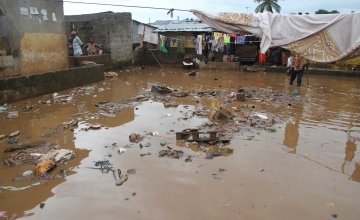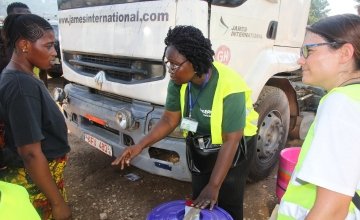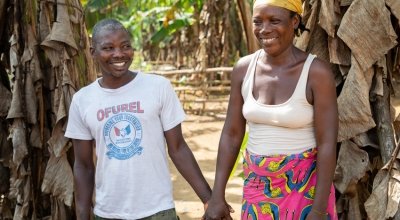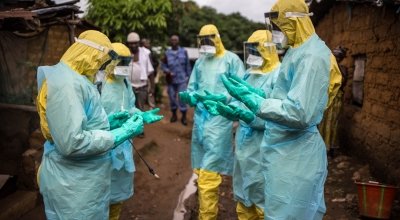
Read our 2023 annual report

Knowledge Hub
Aid distributions underway for Sierra Leone mudslide victims
Heavy rains in Freetown, Sierra Leone, caused mudslides that killed nearly 500 people and displaced thousands. Approximately 600 people are still unaccounted for. Concern’s distribution teams have been activated and are delivering essential supplies to some of the most affected communities.
As part of coordinated response to mudslide in #SierraLeone, we’ve trucked 24,000 litres of water to most vulnerable https://t.co/t56dvUJXkh pic.twitter.com/bpw1Lcbpkl
— Concern Worldwide (@Concern) August 25, 2017
Coping with disaster
The area of Regent suffered the most damage – after a section of Sugarloaf Mountain collapsed – but other areas of Freetown have also been struggling with the effects of the continuous rains. Many drainage canals were filled with trash before the rains and couldn’t cope with the sudden influx of water. Surrounding neighborhoods quickly flooded.
The flooding destroyed homes and washed away all of people's belongings
Concern has worked in Sierra Leone since 1996 and has over 150 staff in the country. After the mudslides, we immediately began conducting assessments in affected communities. We’re also working as part of a consortium of aid agencies collaborating with the government to address immediate needs.
Concern has distributed hygiene kits to 100 families living in Freetown’s Culvert community, which was affected by floods that contaminated water sources and filled homes with dirty water.

“These people were badly impacted,” says Anne Bauby, Concern’s WASH Programme Manager for Sierra Leone. “The flooding destroyed homes and washed away all of people’s belongings.”
Preventing disease
Culvert is a poor community in the eastern section of Freetown. The neighborhood is crowded with shacks and small homes made from scrap metal and other materials. After floodwaters swept through the area, there were fears that disease would soon follow. Anne Bauby explained, “Right now, Culvert doesn’t have good sources of clean water. People are still using contaminated wells, or they collect the rainwater that pools on top of their roofs.”
Culvert was a “hotspot” during the cholera outbreak that struck Freetown in 2012 due to heavy rains and poor sanitation. The epidemic infected more than 19,000 people and killed some 300. Many fear that history could repeat itself given the current conditions.
Hygiene kits are critical to preventing this. The kits include jerry cans and water purification tablets so water can be fetched, safely treated at home, and stored. They also include buckets, bleach, and soap so families can practice healthy hygiene habits.

Concern's Freetown response
Concern is providing clean water to communities in need, trucking in thousands of gallons of water daily to the affected neighborhoods of Kamayama and Kaningo, as well as providing hygiene kits. When the situation stabilizes, Concern will build eight water towers that will provide these communities consistent access to clean water for years to come. We’re also working as part of a consortium with partner agencies to continually assess and respond to the immediate needs of affected communities across Freetown.
You can help
Please give what you can today to help our emergency response in countries like Sierra Leone.
Read more





